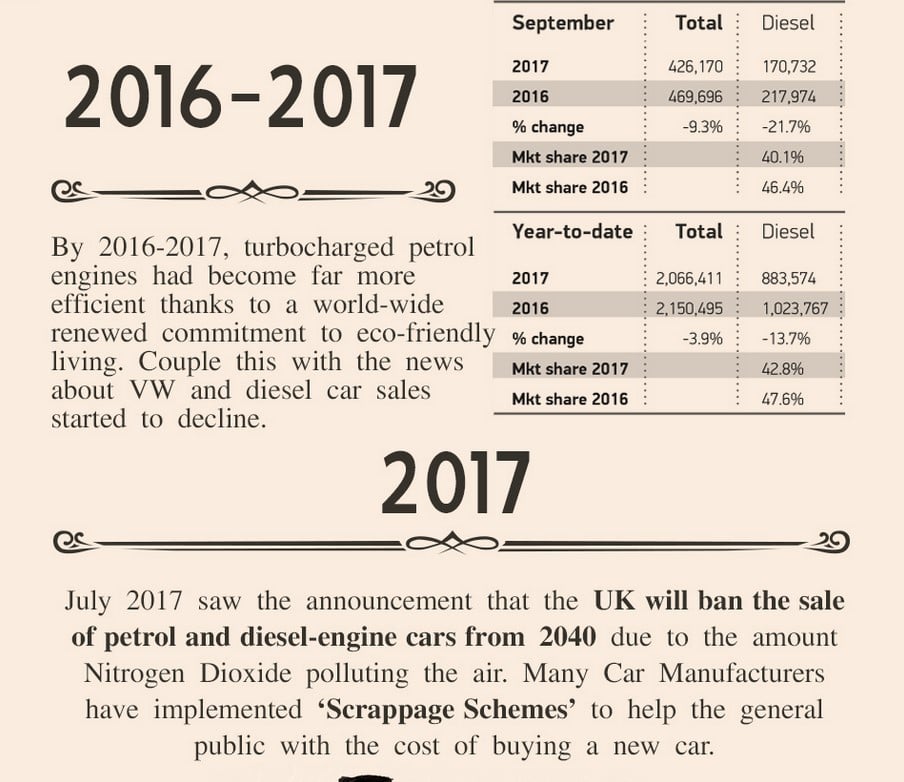It wasn’t so very long ago that if you were looking for a new car then probably every dealership that you visited would have been recommending a diesel engine over any other option. There were many reasons for this, one of them being the large governmental promotions and tax breaks given to manufacturers of these engines.
Unfortunately the diesel engine was not the break through that it was heralded to be, and some years later the diesel is not only not recommended but is actually on the verge of being banned from many areas due to poor emissions ratings and spiralling repair costs.
But turn back the clock to 1893 when Rudolph Diesel first invented the diesel engine. It was a huge breakthrough in the combustion engine as it was more efficient and much cheaper to run. In 1894 the design as patented and the diesel engine began to be produced.
It took some time for the average motor car to use the diesel engine and it was not until 1936 that Mercedes Benz built the first all diesel passenger car. Unfortunately Diesel himself did not see this breakthrough as he died under mysterious circumstances in 1913 when he apparently fell overboard from the SS Dresden when he was travelling to London to discuss the possibility of diesel engines being used to power submarines. Some still believe that his disappearance was not an accident as the German High command had been trying to commandeer the rights to his invention without success.
During the 50’s 60’s 70’s and 80’s the diesel car continued to be developed and although known to be reliable and efficient it remained slow and dirty. It was not until the invention of the turbo charged engine in the 1980’s, again showcased by Mercedes Benz, that the diesel engine became the engine of choice for the everyday motorist. An improved fuel delivery system and an electrical direct injection unit gave the diesel engine a much improved drive and increased economy.
Thanks to huge governmental support and manufacturing subsidies the diesel engine became the go to engine of choice for the next 30 years and sales were roughly 2- 1 in favour of diesel over other fuel engines.
Consumers were led to believe that the diesel car was better in every way compared to other engines and by 2015 almost 60% of all cars sold in Europe were powered by diesel.
However all good things come to an end and in late 2015 the United States Environmental Protection Agency were alerted to a problem with diesel engines. Sadly they were not as environmentally clean and efficient as manufacturers had led people to believe. Several huge companies were investigated and Volkswagen were eventually fined $2.8 billion in 2017.
Today new technology has meant that bio fuels and turbo petrol engines are far more reliable and environmentally friendly, and the diesel engine has been issued a death knell. Many cities are introducing a total ban on all diesel engines in the next few years, so be mindful and choose your next vehicle wisely.
Via Select Leasing







